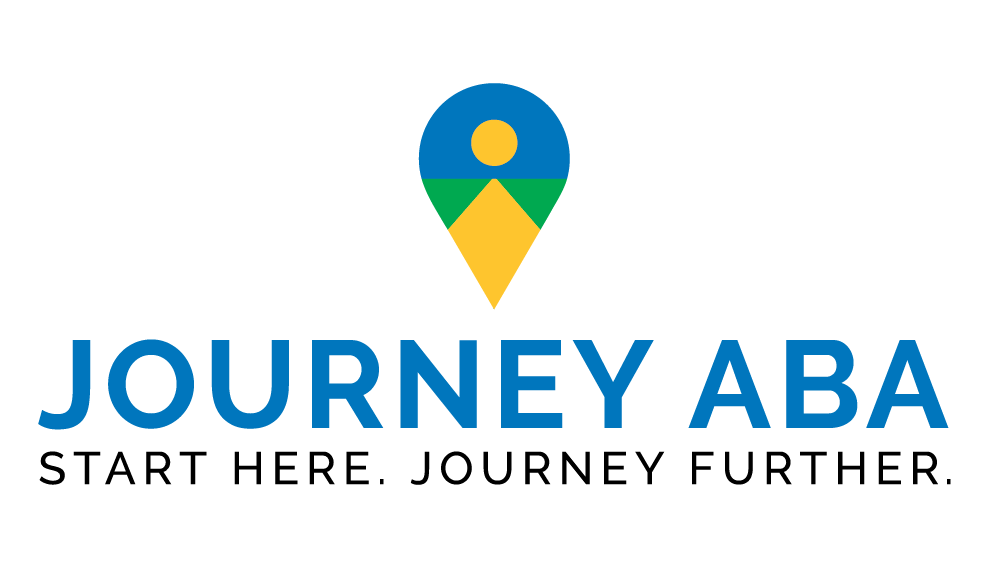 Through ABA therapy, the children in our care at Journey ABA learn essential skills to help them find success across multiple settings. Learning or expanding communication skills is often an important focus of our ABA sessions.
Through ABA therapy, the children in our care at Journey ABA learn essential skills to help them find success across multiple settings. Learning or expanding communication skills is often an important focus of our ABA sessions.
One of the ways that we promote effective communication for our clients is through functional communication training (FCT) in our Massachusetts and Florida centers. In FCT, we focus on teaching our clients to communicate for items, activities, or changes in the environment that are identified during the Functional Behavioral Assessment (FBA). This intervention can help reduce challenging behaviors by giving children with ASD new or more efficient ways to communicate for things they want, rather than resorting in interfering behaviors such as aggression, self-injurious behavior, or property destruction.
Contact Journey ABA at 844.222.4513 or reach out to our team online today to learn more.
What Is Functional Communication Training?
Functional communication training (FCT) is an important intervention for many of our clients. The goal of this intervention is to teach effective communication skills to serve as a replacement behavior for those who exhibit potentially harmful or dangerous behaviors such as aggression, self-injurious behavior, and pica.
Many types of behaviors serve as a form of communication, including gestures, picture exchange, sign language, and vocal speech. Even interfering behaviors may serve as a form of communication for some of our clients who may not yet have robust communication skills, albeit not the most desirable one. For example, a child who wants a specific type of food, but can’t communicate what they want, might have a tantrum when they’re served something different. In this example, we may be able to teach the child to appropriately ask for a different food item using a procedure such as FCT.
Through FCT, those with autism spectrum disorder can learn how to use different forms of communication, both verbal and nonverbal. Some of the forms of communication that can be taught through FCT include:
- Gestures
- Sign language
- Speech
- Symbols
With the information gathered during the comprehensive assessment completed with each client, our BCBAs may work to improve communication skills as a part of a client’s behavior support plan, or BSP. This may include FCT, where our team arranges opportunities for our client to practice using a specific communication response, such as picture exchange, to access preferred items, activities, or changes in environment. If FCT is successful, levels of this appropriate communication will increase, while rates of interfering behavior will decrease and remain low over time. Once this occurs, we may work to increase our client’s tolerance with periods where they cannot access the preferred item, activity, or environmental change. Additional intervention components might be necessary to help our clients participate fully in ongoing activities. For example, we may teach a client to communicate for a brief break from work periods where interfering behavior is more likely to occur; however, there are typically times in which a break can not be provided or is not appropriate at that time. In this case, we may include an additional intervention component, such as a token economy system, to help our client engage with work periods for longer periods of time.
Functional Communication Training Activities
FCT typically involves a number of steps to help clients develop an efficient means of communication, and the number of steps necessary often vary between clients.
First, our team will complete an FBA to determine the root causes of any interfering behaviors like self-injury or aggression.
Next, our team will work with out clients, their family, and other professionals (e.g., a speech and language pathologist, teacher, etc.) to determine a more effective way for our client to communicate.
Finally, our clinicians will work to teach the client the relation between the communication response and obtaining the preferred item or activity. Over time, the goal is for the client to use the functional communication response (FCR) independently.
Once the intervention is found to be effective, we will work with the family to ensure the FCR is effective across multiple settings and generalizes to new caregivers. We may also work to establish additional FCRs for other items and activities that were identified to increase the probability of target behavior during the FBA.
Contact Journey ABA Today
At Journey ABA, we’re committed to providing support to both our clients and their families or caregivers. From diagnosis to adulthood, we offer adaptable treatment plans that address interfering, potentially harmful behavior to help our clients be successful, no matter what their age.
Learn more about our ABA treatment programs by connecting with our Family Support Team today at 844.222.4513.
